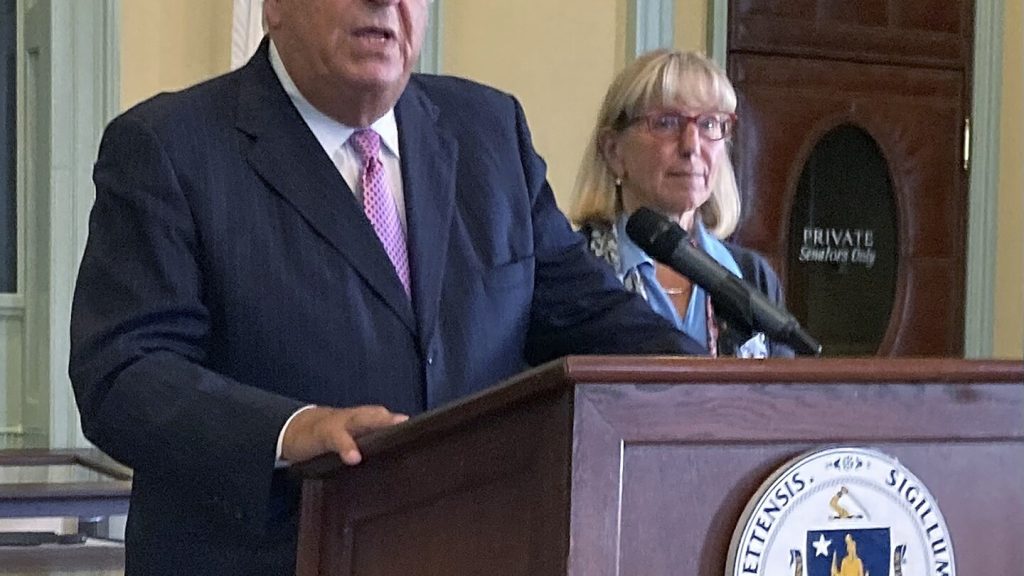Massachusetts House leaders have unveiled a proposed $57.9 billion state budget for the 2025 fiscal year, with significant investments in emergency shelters and public transportation. The budget includes $500 million for emergency shelters, which lawmakers say is crucial for addressing the strain on the system due to an influx of migrants seeking shelter. Additionally, there is a record investment of $555 million for the Massachusetts Bay Transportation Authority (MBTA), with another $184 million allocated for regional transit authorities. House Speaker Ronald Mariano emphasized the importance of a safe and reliable public transportation system for the state’s economy.
The proposed budget represents a 41% increase in transportation funding from the current fiscal year and relies in part on funds generated by the “millionaire tax” ballot initiative approved by voters in 2022. This initiative established a 4% surtax on annual income exceeding $1 million. The budget also includes $20 million for reduced MBTA fares for riders with lower incomes. Despite the substantial investments, budget writers were able to create a balanced spending plan without tapping into the state’s rainy day fund, which is projected to exceed $9 billion, making it one of the largest state rainy day funds in the country.
Governor Maura Healey released her own version of the state budget in January, with a total of $58 billion in proposed spending. Healey’s budget includes initiatives to address the high cost of housing and childcare, as well as positioning Massachusetts as a leader in climate innovation. Her proposal does not rely on new broad-based taxes and does not require a withdrawal from the state’s rainy day fund. It allocates $1.3 billion from the “millionaire tax” for transportation and education initiatives, such as a universal school meals program and a low-income fare relief program for the greater Boston area’s public transit system.
Following the presentation of the House budget proposal, the full House is expected to debate the spending plan next week. The next step in the budget process will involve the Senate drafting and voting on its own state budget plan. A six-member conference committee consisting of House and Senate members will then work to reconcile the differences between the two proposals and create a unified budget plan for final approval by both chambers before being sent to Governor Healey for signing. The focus of these budget deliberations will be on addressing critical needs in emergency shelters, transportation, education, and other key areas to support the state’s residents and economy.


